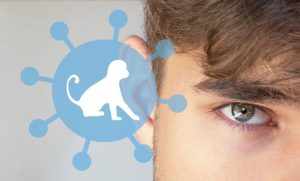When you turn to an ancestry service like gedmatch com, you may not be thinking of health conditions passed through your family tree. However, there are a number of health issues that can be passed down from generation to generation. Some of the most common include:
Tinnitus

Tinnitus is a condition that causes a ringing or buzzing sound in the ears. It can be caused by a number of factors, including exposure to loud noises, earwax buildup, and circulatory problems. Tinnitus can be passed down from generation to generation if it is inherited genetically.
There is currently no cure for tinnitus, but there are a number of treatments that can help lessen the symptoms. Some people find that they need to change their lifestyle in order to cope with the condition, such as avoiding loud noises or taking time for relaxation and meditation. Others find that using a hearing aid or tinnitus masker can help them to function more normally in daily life. Still others take advantage of supplements like Tinitus911 to help ease their tinnitus symptoms.
If you are experiencing tinnitus, it is important to see your doctor to find out if there is a underlying cause that can be treated. Tinnitus can be a sign of a more serious problem, such as hearing loss, so it is important to get it checked out.
Mental Health Problems
Mental health problems can also be passed down from generation to generation. These problems can include anxiety, depression, bipolar disorder, and schizophrenia. If one or both of your parents have a mental health condition, you are at a higher risk of developing one yourself.
This is because many mental health conditions are caused by a combination of genes and environment. If you are raised in a household where your parents are constantly arguing or are not emotionally supportive, this can also increase your risk of developing a mental health condition.
If you are worried that you or someone you know may have a mental health condition, it is important to seek help. There are many resources available, including therapy, medication, and support groups.
Heart Disease

Heart disease is a problem with the function of your heart. It can lead to heart attacks, chest pain, and other problems. It can be passed down from generation to generation if it is inherited genetically. If one or both of your parents have heart disease, you are at a higher risk of developing it yourself.
If you have heart disease, it is important to get treatment. Treatment can help you manage your condition and lower your risk of heart attack or other problems. If you are at risk for heart disease, there are things you can do to lower your risk. You can eat healthy foods, exercise, and not smoke. You can also get your blood pressure and cholesterol checked regularly.
If you have heart disease, it is important to get treatment. Treatment can help you manage your condition and lower your risk of heart attack or other problems.
Diabetes
Diabetes is a condition that causes blood sugar levels to become too high. It can be passed down from generation to generation if it is inherited genetically. If one or both of your parents have diabetes, you are at a higher risk of developing it yourself. There are two types of diabetes: type 1 and type 2.
Type 1 diabetes is an autoimmune disease that occurs when the body’s immune system attacks and destroys the cells in the pancreas that produce insulin. Insulin is a hormone that helps the body use glucose for energy. People with type 1 diabetes must take insulin every day to survive.
Type 2 diabetes is the most common type of diabetes. It is a metabolic disorder that occurs when the body does not use insulin properly. Insulin is a hormone that helps the body use glucose for energy. People with type 2 diabetes may not need to take insulin every day, but they must manage their blood sugar levels through healthy eating and exercise.
Both types of diabetes can cause serious health problems if they are not managed properly. Diabetes can lead to heart disease, stroke, blindness, kidney failure, and amputations.





